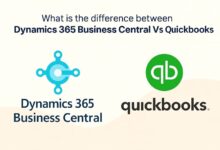The Impact of Salesforce Marketing Cloud on Real Estate Transformation

The real estate sector has never been stagnant and has been influenced by changing consumer tastes and preferences, the variation of markets, and the increasing power of online systems. However, over the last few years, the digitalization of the real estate industry has been on a charge with the advent of more advanced customer relationship management (CRM) software and marketing automation systems.
Salesforce Marketing Cloud has proven to be a game-changer and has liberated real estate professionals to reinvent their approach to attracting, engaging, and keeping clients. The transactions related to real estate are usually emotional and expensive.
Customers require personalized communication, timely response, and faultless interaction on various online platforms. The marketing techniques of the past such as generic email requests, manual follow-ups and generic advertisements cannot be used any longer. What real estate companies require instead is a data-driven, automated and adaptive customer centric strategy.
This is where Salesforce Marketing Cloud can be considered a game-changer. In this article, Salesforce Marketing Cloud and its features, advantages, challenges, and best practices are discussed in the context of the real estate industry. We will address how it can affect lead generation, accelerate conversions, enhance customer interaction and drain resources and address the challenges that real estate companies face in a highly competitive online world.
What is Salesforce Marketing Cloud in the Real Estate Industry?
Salesforce Marketing Cloud is a digital marketing platform that is integrated to provide customized customer journeys through various touchpoints email, SMS, social media, websites, and advertising platforms. In the case of the real estate industry, it would be more than generic marketing automation.
It is an entire ecosystem which assists agents, brokers and property developers to develop meaningful relationships with buyers and sellers across the property transaction lifecycle.
The Major Salesforce Marketing Cloud capabilities in Real Estate:
- Customer Data Platform (CDP): Data on buyers is aggregated across multiple sources (websites, property searches, event attendance, and inquiry forms) into one 360-degree profile.
- Journey Builder: Constructs automated and behavior driven customer experiences, such as nurturing a potential customer who has shown interest in luxury apartments or following up with a seller who is considering listing their property.
- Audience Studio: Targets audiences in a hyper-targeted manner, bringing together demographics, property preferences, location, and buying intent to create highly precise campaigns.
- Interaction Studio: Monitors buyer behavior in real-time and dynamically customizes messages such as by sending a mortgage guide when a visitor views financing pages.
Key Findings in Salesforce Marketing Cloud in Real Estate:
Lead Generation Enhancement:
- Finding true purchasers and sellers when there are many more questions than answers is one of the biggest problems in real estate. This is addressed through SFMC and its use of segmentation, predictive analytics or automated lead nurturing campaigns.
- Real estate companies can target specific qualified prospects that are most likely to be converted instead of using generalized advertising methods.
- An example is where a visitor to the high-end residential home page of a developer can be automatically redirected to a high-end buyer group. It is then that they get targeted emails including links to virtual tours, brochures, and financing.
- Automation of these processes reduces the number of hours agents waste in pursuing non-qualified leads and increases their focus on closing deals with serious buyers.
Customer Engagement and Personalization
- When it comes to real estate, the experiences of each buyer are different. There are those that put more emphasis on location and others that are determined by the availability of financing or other lifestyle facilities.
- Salesforce Marketing Cloud enables marketers to create personalized journeys to meet these needs.
- When powered by AI, the emails and messages can be customized to pinpoint useful property listings or updates depending on how the buyer has been browsing.
- As a pointer, an anonymous customer inquiring about villas may receive tailored proposals regarding new openings in coastal areas, but a customer looking at commercial housing may receive office-specific information.
- This degree of personalization will create trust, loyalty, and will drastically improve the chances of conversion.
Conversion Rates Acceleration
- In real estate deals, speed is of the essence. Potential buyers will be put off when there are delays in follow-ups or generic communication.
- Salesforce Marketing Cloud increases the speed of the lead-to-sale cycle by automating responses and building structured nurture campaigns.
- It has been demonstrated that companies that use advanced automation in real estate are able to save up to 60 on lead-to-conversion time and also increase conversion rates by almost 30.
- These gains are a result of a mix of individualized interaction, responsiveness, and regular channel contact.
Enhance Sales Performance
- It enhances the quality of leads available to sales teams, as well as the visibility of buyer behavior and a centralized communication system.
- When marketing information moves directly into sales processes, agents gain more information about client needs.
- This gives them the ability to work on hot leads, have meaningful conversations, and close more deals.
- According to surveys, sales growth of 40-50 percent is a common report among real estate companies within the first year of implementing Marketing Cloud tools.
- This is due to the growth in efficiency, better targeting of campaigns and better customer engagement.
Comprehensive Marketing Approach
- One of the things that make the real estate business successful is consistency and reach.
- Salesforce Marketing Cloud brings together all marketing channels email, SMS, web, social media, and paid advertising into a single ecosystem.
- This means that the prospects will get a single brand message on all channels. Rather than implementing campaigns in silos, real estate marketers are able to implement coordinated strategies.
As an example, a campaign to launch a property may involve:
- One-on-one email invitation to the virtual tours.
- Social media advertising to particular groups.
- SMS follow-up reminder to registered participants.
- Send a post event nurture that includes financing.
- This is a holistic strategy that leads to consistent customer experience, increased engagement levels, and increased visibility of property listings.
Overcoming Challenges in Salesforce Marketing Cloud for Real Estate Sector
Its transformative advantages, real estate professionals face a number of challenges when implementing marketing automation. Salesforce Marketing Cloud offers aids and techniques to overcome those.
Identifying Prospects
- Most real estate companies are faced with fragmented databases, duplications, and missing customer profiles. The way Salesforce Marketing Cloud manages to break this is by aggregating information in single customer profiles.
- Deduplication with AI means that the marketeer is working from clean, correct, and actionable data. This is something that enhances segmentation and lead targeting.
Marketing Expenses
- Marketing campaigns may be very resourceful, particularly when they are distributed on various platforms.
- The automation of Salesforce Marketing Cloud helps to decrease the number of tasks performed manually, optimize the amount spent on advertising, and make sure that all marketing dollars are spent wisely.
- Dashboards of campaign performance also focus on distinguishing those channels with the best ROI so that firms may allocate budgets more strategically.
Intense Online Competition
- Differentiation is required since there are many real estate listings competing to attract people on the internet.
- Salesforce Marketing Cloud assists real estate companies to be distinct because predictive modelling is used to signify audiences with the highest likelihood of responding.
- Dynamic content like property images, videos, or offers are personalized campaigns that attract attention in a crowded marketplace.
Changing Market Conditions
- The real estate markets are very elastic with regard to economic trends, changes in policy, and the mood of buyers.
- Salesforce Marketing Cloud offers flexibility as it enables companies to adjust campaigns in a short time frame.
- In this case, say there is a growth in demand for affordable houses because of the changing economic conditions, marketers can redirect campaigns immediately to target cheap houses.
Customer Expectation and Communication Problems
- Contemporary consumers want their requests to be handled more rapidly and hassle-free. Older ways like manual calls back, or slow email responses are not always effective.
- With Salesforce Marketing Cloud, it is possible to engage in real time via automated processes.
- Prospects can be kept active at all touchpoints, be it through SMS alerts, WhatsApp or custom email.
Benefits & Best Practices in Real Estate with Salesforce Marketing Cloud
Enhanced Listings Presentation
- It is possible to display and present properties in visually attractive formats on various platforms.
- Property videos or brochures, or 3D virtual tours can be sent to interested buyers through automated workflows.
- This not only increases the attractiveness of the listings but also the time that prospects can analyze the properties.
Personalized Marketing
- By segmenting audiences based on location, price level, and preferences, marketers will be able to offer the content that will appeal to them.
- One such area is through the mailing of campaigns to families that would like to purchase larger homes in the suburbs like schools, parks and community centers and young professionals can also be mailed to areas near business centers and recreational centers.
Increased Visibility
- The highest reach is provided by omnichannel marketing. Whether it is paid social media campaigns or customized email series, Salesforce Marketing Cloud ensures that property offerings are shown to the appropriate audience, at appropriate times.
- Campaign analytics will follow to give a clear understanding of what platform is creating the most visibility.
Qualified Leads
- Not every enquiry is a serious buyer. The lead scoring system is used at Salesforce Marketing Cloud to keep the sales teams dedicated to the most promising opportunities.
- Automated nurturing can also be used to warm less engaged leads until they are willing to buy.
- This balance will ensure that no lead is allowed to go to waste, and the maximum conversion potential is realized.
Consistent Branding
- Regularity is extremely crucial in real estate marketing. It could be a luxury development or a commercial area, but having a consistent brand voice in campaigns creates a sense of credibility.
- The centralized campaign management in Salesforce Marketing Cloud allows all emails, ads, or SMS to be brand compliant.
Resource Efficiency
- Automation will also conserve labor in the marketing and sales staff.
- Using the workflows, repetitive tasks can be completed not by sending follow-up messages or following up leads manually but by spending more time on developing relationships with customers and making sales. This leads to increased productivity and RO.
Conclusion
The real estate sector is going through a digital transformation and Salesforce Marketing Cloud is at the frontline of this revolution. It consolidates customer data, personalizing their interactions, automates lead nurturing, and combining various marketing channels to help real estate professionals realize quantifiable growth.
The platform offers solutions to the most urgent issues in the industry, not only by accelerating lead conversions but also by improving customer experiences. Companies that embrace Salesforce Marketing Cloud not only enjoy increased efficiency and resource savings but are also in a position to stay afloat in a highly dynamic marketplace.
The platform has developed simple to use tools to guide beginner users in simplifying complicated processes in marketing. It provides new analytics, predictive modeling, and scalable solutions that can be correlated with experienced professionals who understand business expansion goals.
In simple terms, Salesforce Marketing Cloud is not a real estate marketing tool, but a long-term strategic change facilitator. Real estate companies may advance their relationship with customers by keeping their full potential, optimizing their operations and by keeping a high position in the future.
The most common frequently asked questions (FAQs)
1. What is Salesforce Marketing Cloud and how can it assist real estate companies to enhance lead generation?
- The Salesforce Marketing Cloud is used to improve the process of generating leads by integrating information gathered on various platforms, including websites, social media, and property portals into one platform. It identifies high intent buyers with the help of segmentation and AI powered analytics and makes sure marketing campaigns are going to the high intent buyers.
- These leads are developed in automated workflows with personalized e-mails, SMS notifications, or property suggestions and are converted into qualified leads. This is a lean process that minimizes wasted effort on dead ends and enables sales groups to concentrate on prospects most likely to turn into customers.
2. Is Salesforce Marketing Cloud able to be tailored to various real estate-based businesses?
- Salesforce Marketing Cloud is flexible, which is one of its strengths. It can be used by residential real estate companies to promote amenities in a neighborhood and commercial real estate companies to promote office spaces and retail units or investments.
- Large scale developers can initiate campaigns in a variety of channels since property developers launch large scale development projects, and since small agencies can employ automation to scale their outreach efforts with a small number of resources. The modular construction of the platform allows it to be oriented towards unique business models and marketing objectives.
3. How can Salesforce Marketing Cloud save money that real estate firms spend on marketing?
- In real estate, marketing expenses tend to increase because of disjointed campaigns, redundant campaigns and ineffective advertising. The Salesforce Marketing Cloud eliminates these problems by automating repetitive features, centralizing campaigns and real-time understanding of the ROI.
- This implies that companies can easily determine which channels are performing best and invest more in those channels. With fewer manual workloads and campaigns that are delivered to the appropriate audience, real estate businesses become more efficient and save on total marketing expenses.
4. What does being personal really mean when marketing real estate through Salesforce Marketing Cloud?
- Real estate is a business area that requires personalization since the preferences of the customer are very different. Salesforce Marketing Cloud makes mass personalization possible, as well as allows the use of data about location, budget, browsing history, and previous interactions.
- The former is when a first-time home buyer receives information about the financing programs and fails to be given a personal tour of one of the properties being marketed as a luxury. This is a one-on-one interaction that creates a sense of trust and makes the potential customers feel important, which also leads to a high engagement and conversion rate.
5. Can Salesforce Marketing Cloud be used by real estate companies of a small or middle size?
- Large real estate companies can use its scalability to their advantage, but smaller and mid-sized organizations may also use Salesforce marketing cloud to compete with larger companies.
- Automation would allow small companies to do away with big marketing departments, and analytics would assist them in comprehending their customers without putting their research funds to the test.
- Also, other attributes such as email automation, lead scoring, and social media integration enable smaller agencies to conduct professional-quality campaigns. The platform can expand as the business expands, so it is long-term value.





